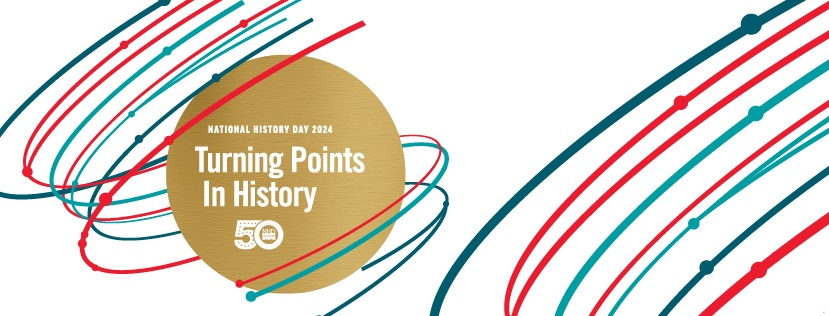Testimonial
Elizabeth Laurent
I never imagined I might cry at the National Constitution Center. But I did last week.
I wasn’t tearful over the story of our remarkable constitution or its reverberations over twenty decades. Not over the beauty of the building or the smartness of its exhibits.
I was close to tears as I watched over 700 Philadelphia students in grades 9-12 be judged in the Philadelphia Region’s 2011 National History Day. I saw winners announced in five categories: exhibits, papers, performances, websites and documentaries. I heard the voices of young Philadelphians raised in support of each other. Did I. M. Pei imagine how LOUD his marble overlook could be when swelled by the enthusiasm of hundreds of high school students? (I asked an NCC security guard, and he allowed as how the NHD awards ceremony is the museum’s loudest annual event...) This joyful sound is what it’s like for kids to celebrate each other’s achievements in history.
How can it be competitive yet supportive?
This year’s theme was Debate and Diplomacy: Successes, Failures and Consequences.
Loud and clear, I heard teenagers root for their schoolmates, cheering as if it were a sporting event. I heard teenagers support insightful study of American stories. I heard teenagers reward contemporaries who struggled to tell the most challenging stories of our country’s past.
There was neither red carpet nor acceptance speeches but there were certificates, neck medallions, and a photo opportunity as winning students exited the awards stage. The ceremony was set against the huge glass wall of the south side of the NCC: the awards were presented against the backdrop of the new President’s House memorial and Independence Hall to the south, the “ticker tape” of current events on the WHYY façade to the west, and beneath the flags of the fifty American states. A powerful mix of images past, present and future.
I was privileged to be part of a team judging six exhibits. Judges were reminded to make this a positive experience for the students. We were trained to acknowledge the strengths and weaknesses of the research and the resulting exhibit: 60% of the mark was for historical research and accuracy, 20% for exhibit’s visual appeal and the final 20% for meeting the format requirements including a difficult 500 word limit. The topics I judged explored (in chronological order) the 3/5 Compromise in the US Constitution, the 1850’s Lincoln-Douglas debates, 1954 Brown v. Board court decision, the local struggle to desegregate Girard College, the 1960’s Loving v. Virginia court decision allowing inter-racial marriage, and the 1980’s Bakke case about whether affirmative action was reverse discrimination.
Let’s face it: a competition is, well...competitive. Whose research is better? Who presents it more effectively? Who cuts to the chase and “sells” the story, editing out extraneous details to get to the point? This is not an occasion where we are all winners.
I was among one hundred volunteer judges, most of whom were colleagues from around the city’s museums, libraries, archives, historic sites and research institutions. I saw folks with whom I am in phone or email contact, but whose busy schedules mean we are seldom in the same room. This day we were together for the same reason.
I learned a lot from these kids. My generation complains about how little the youth know about the past, about how the world has changed, or about the issues of our day.
Don’t tell me none of the younger generation cares about history. Don’t tell me no kids have a sense that life was different in decades past or that America has advanced on difficult issues. Think we haven’t advanced enough? Ask some of these kids and they can tell you the successes, failures and consequences of an astonishing variety of topics including women’s rights at Seneca Falls, hunger in America, the Move bombing and facebook. Sometimes they tell you more than you want to know because they are excited by what they have learned.
Next March, attend the 2012 National History Day awards ceremony at the National Constitution Center. You will not feel that all are winners, but never again will you feel deep despair that today’s kids “just don’t get it.” Give them the opportunity, the structure, the support and our teenagers will amaze you. And while their cheering may make you want to cover your ears, you too may be brought to tears.
Elizabeth Laurent has been a history professional for over 25 years. She is currently Director of Historic Resources at Girard College in Philadelphia.



